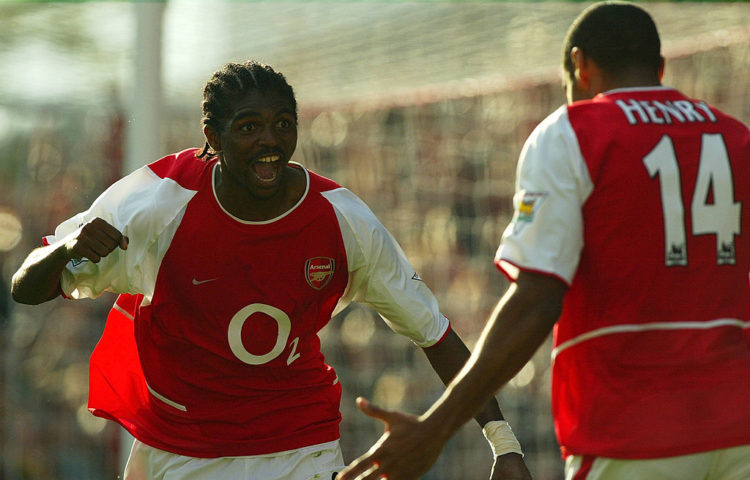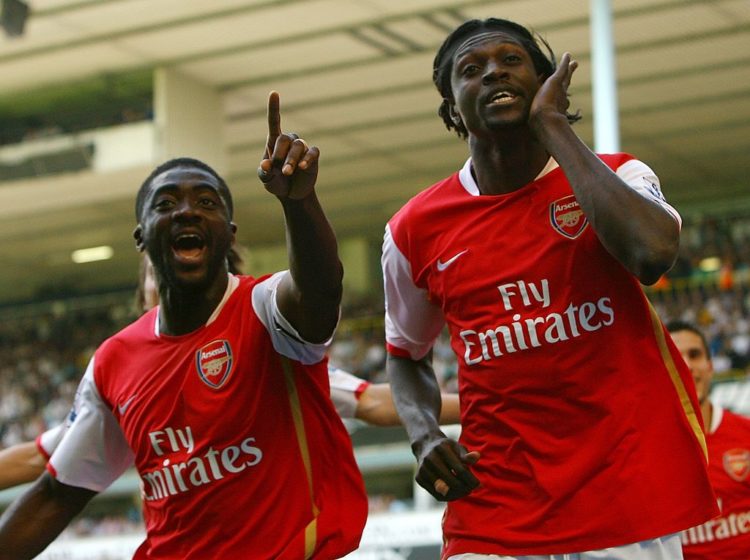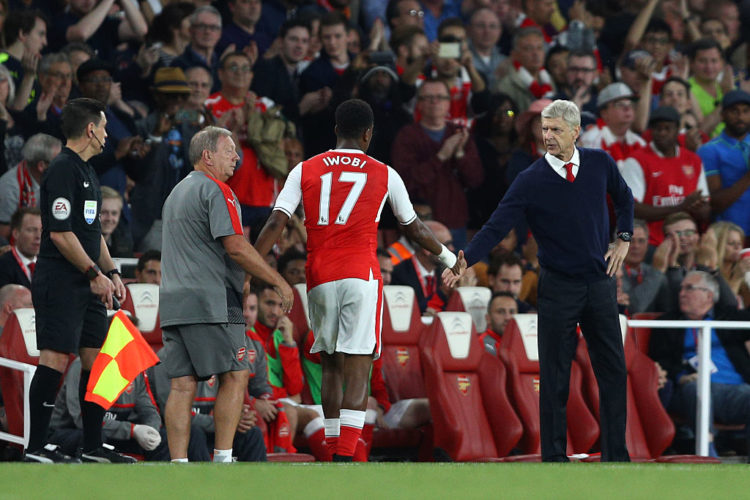Arsène Wenger has hailed the impact of African players on his management career as he celebrates 20 years in charge at Arsenal.
It’s been two decades since he was officially announced as the new boss of the north London club. In the years that have followed, Wenger has transformed not only Arsenal but English football on the whole.
And the Frenchman has often come to rely upon African players during his tenure with the likes of Nwankwo Kanu and Lauren, for instance, both enjoying glittering spells with the Gunners.
Nigerian striker Kanu scored 30 Premier League goals in 119 appearances for the club, including a memorable hat-trick in 1999 when, with Arsenal trailing 2-0, he struck three times in the final 15 minutes to win the game at Stamford Bridge.
He left Arsenal in 2004 having won two FA Cups and two Premier League titles, the second of which was one of the most impressive in modern-day football as the side, who would become known as ‘The Invincibles’, ended the season without losing a single game.
The 40-year-old was one of three African players to feature in the league for Arsenal that season with Cameroon full-back Lauren and Ivorian Kolo Touré also emerging as stars at Highbury.
‘Players from Africa had a massive impact on my career because I always managed African players right from the moment I started in the top league in France,’ Wenger reflected.

‘I had African players at Monaco and I like the fact that they were creative and they are usually attacking players with imagination.’
‘They have pace and power as well, and they usually combine strength and agility well. That’s very difficult to find.
‘They are hugely passionate people and there is a big passion in Africa for the game. They are happy on the football pitch and that’s something which has been fantastic for us.’
Since then, Wenger has signed forward players like Emmanuel Adebayor, the Togo star, and Moroccan Marouane Chamakh while Ivory Coast winger Gervinho spent two years at the club before moving onto Roma in 2013.

But, when pushed on which player from the continent made the biggest impact, Wenger could not pick just one.
Although he did reserve special praise for Kanu, who gave him a reminder of his class when he scored a hat-trick for an Arsenal Legends side as they beat their AC Milan counterparts in a charity match at Emirates Stadium in September.
‘The greatest impact?’ said Wenger, who boasts Egyptian Mohamed Elneny and Nigerian Alex Iwobi in his current squad.
‘Kanu had a massive impact here, Kolo Touré too, I had George Weah at Monaco, so all these players had a massive impact.’

Wenger, who has made a habit of unearthing bargains during his time in charge, signed Kanu in 1999 for a relatively meagre £4.15m after he had played just 12 games for Inter Milan during a three-year spell at the San Siro.
However, during his five years with Arsenal, the Owerri-born forward became a firm favourite with the club’s fans, who voted Kanu 13th in their list of greatest ever players.
An impudent back heel scored against Middlesbrough and a famous goal in in the north London derby against bitter rivals Tottenham both stand out, but it is the third goal in his famous Chelsea hat-trick that goes down as perhaps his most memorable strike. For the record, it was voted the club’s 18th greatest goal.
Fun fun fun with 2 great legends 👍👍💪@Arsenal #coyg pic.twitter.com/cga7OhPdrK
— Kanu Nwankwo (@papilokanu) September 4, 2016
‘I remember this game like it was yesterday,’ Kanu said in a recent interview with the club’s official match day programme.
‘We were losing 2-0 at the time and I scored twice to bring it back to 2-2. I remember there were only a few minutes left. I got the ball on the left and then dribbled past the goalkeeper. From that point there was only one thing on my mind.
‘I just made sure I hit the target because I knew it would go in. Even if I missed the chance, it would have been 2-2, which is not bad given that we were behind. To be a good player, you always have to feel as though you can do it, and then I did.’
